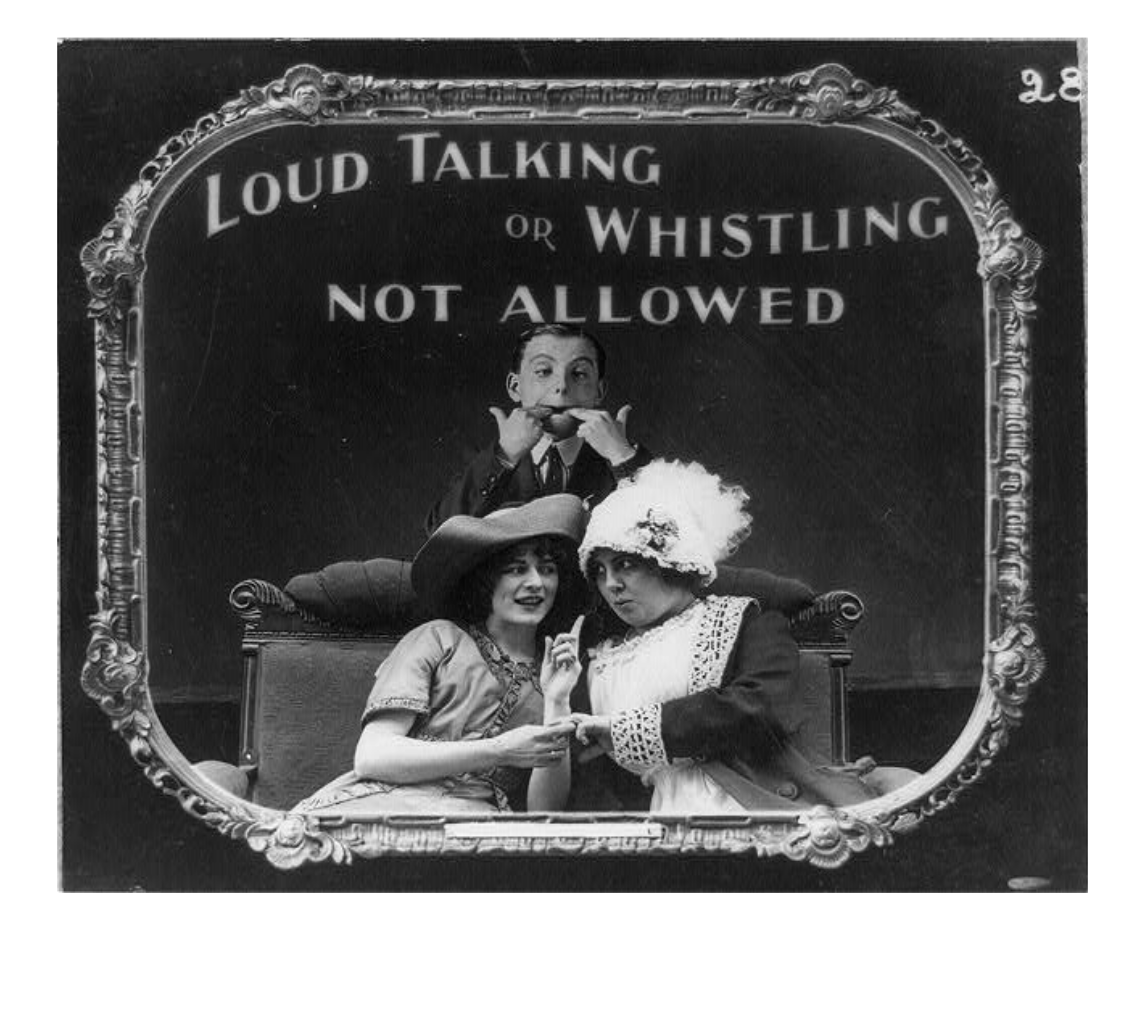
“Okay,” my friend says, “pick a blade of grass. I’m gonna teach you to whistle.”
She had already tried (to no avail) teaching me to blow big poppable bubbles in bubblegum. Whistling was another childhood pleasure I never mastered, and I think she feels sorry for me. Or senses that I feel sorry for myself.
“My tongue doesn’t curl,” I say through clenched teeth. “We have established that.”
“Doesn’t matter. You should be able to do it this way.”
And so we sit at a picnic table in a deserted park, and I try and try and try. And then I drop the blade of grass so it can rot along with my dreams. Anyone can whistle, huh, Stephen Sondheim? So not true.
“Oh, who even whistles anymore anyway,” I mutter. And driving home, the truth of that hits me. A quick search brings up plenty of proof of the art’s demise. British cultural historian Chris Cook notes that whistling has all but disappeared, now that people are earbudded to their smartphones, men are forbidden the wolf whistle, working-class jobs have faded away, and variety shows are dead.
John Lucas, coauthor of A Brief History of Whistling, points out that miners used to whistle on their way to the pits (just like the seven dwarves!). Factory workers whistled on their way to work, too; there were even whistling choirs on buses, at least in the U.K. Somehow whistling had become a working-class form (because it was noisy?), and one restricted to men. Women were considered unladylike if they whistled, which may be because prostitutes once whistled to hail clients.
Or because whistling spells freedom. A whistled melody always sounds carefree. Or maybe people are likelier to whistle when they are happy? When you are sad it is hard to summon the breath. But there is also whistling to while away tedious work; whistling to work up courage; whistling in the dark, of which there is a lot these days. We need more tiny acts of defiance, more of Lauren Bacall’s sass. She and Bogart were having an affair when they did To Have and Have Not, hence the heat in that legendary scene where she asks in her sultry, amused voice, “You know how to whistle, don’t you? You just put your lips together and blow.” They eventually married, and when he died, she slipped a whistle into his coffin.
We, by contrast, have grown so grim that people ask online, “Is whistling a sign of mental illness?” No man dares whistle as a compliment (even though the wolf whistle originated as a shepherd’s warning of approaching wolves and should by all rights have been used by women instead). Mines are closed, factories went overseas, and professional whistlers cannot find a gig. All we have left in these spare, tense days are political dog whistles and whistleblowers.
What is whistling, in its pure state? A shrill, high-pitched musical sound produced when air is forced through a small opening or against a thin edge. The people of La Gomera, in the Canary Islands, communicate by whistling; the language is called Silbo and can be heard for miles, across deep ravines and high in the mountains. I would never make it on La Gomera.
Quora is full of helpful instructions for various whistling techniques (I tried them all). A member named Jeff Caudle underscores the benefits: “Makes you look innocent, especially when leaving the scene of a crime. Warns bears and criminals to your presence…. A great way to start a musical dance number…. Pigeons will respect you. Great way to interlude an awkward silence….Tunes out the world. Confuses people if you match their ringtone.”
I would add the ability to hail a taxi in Manhattan; the cool of a long, slow whistle as a response; the recall potential for a dog off leash; the fun of copying birdsong. How could you whistlers let the practice slip into oblivion? No form of human expression should be cast aside; we have enough trouble communicating with all the tools at hand. If I could, I would whistle to catch a friend’s attention, to show appreciation, to amuse a little kid or warn the dog, to hear the notes echo in the shower….
Once, people like me were assumed to be genetically flawed. Turns out that was one more genetic mistake. With hours of daily practice, non-whistlers have indeed learned to whistle. But that is quite a commitment, when I can just wait for ill-fitting dentures.
Meanwhile, I compensate. I let the teakettle whistle a little too long; I hum along to “Dock of the Bay” or Paul Simon whistling Julio through the schoolyard. I think happily of the wild whistling swan, the whistle pig, the mountain marmots that I am told whistle, although I am not sure what a mountain marmot even is. Dolphins have signature whistles. An orangutan made the science journals by spontaneously whistling in imitation of a caretaker.
Now who will teach the orangutans?
Read more by Jeannette Cooperman here.
